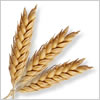Ειδήσεις Για Την Εταιρεία Μας

 Russia & Ukraine: Russia agrees to re-join Ukraine grain exports deal
Russia & Ukraine: Russia agrees to re-join Ukraine grain exports deal
Grain shipments from Ukraine will resume on November 2 after Russia agreed to re-join a UN-backed initiative to allow exports via the Black Sea, ending a stand-off that threatened to reignite a global food crisis, The Financial Times reported.
Turkey’s president Recep Tayyip Erdoğan said Sergei Shoigu, the Russian defence minister, had phoned his Turkish counterpart to say Moscow was back on board.
Addressing his security council on November 2, Russian president Vladimir Putin said Russia would continue to supply “the volume of grain that was supplied from Ukraine to the poorest countries” even if the latest agreement collapsed. Many Middle East and African countries have been sympathetic to Moscow’s arguments that sanctions — rather than the invasion of its neighbour Ukraine — are the main obstacle to grain exports.
The next shipments of grain would head to Somalia, Djibouti and Sudan, Erdoğan said. The Turkish leader, who has maintained close ties with Putin since Moscow launched its full-scale invasion in February, helped broker the original grain deal in July.
Russia quit the pact on October 29, accusing Kyiv of targeting its naval fleet in the Black Sea following claims of a Ukrainian drone attack on its warships. Moscow’s withdrawal threatened a rare example of wartime co-operation that has allowed more than 9mn tonnes of Ukrainian agricultural products to reach international markets, helping forestall a global food crisis.
Putin said Russia “would not hinder grain supplies from Ukraine to Turkey at any point in the future”, citing Turkey’s neutral stance on the war and Erdogan’s efforts to represent the “poorest countries”.
He said Ukraine had given Russia guarantees not to use the grain export routes for “military means” but said Moscow “retained the right to exit the deal if those guarantees are violated”.
Serhiy Kuzan, an adviser at Ukraine’s defence ministry, said Kyiv “gave no new assurances in addition to the ones included in the original agreement”, adding that “we have not and will not use this grain shipment corridor for military purposes”.
Kyiv has complained that Russia is continuing to use its Black Sea fleet to launch air strikes on Ukraine, including a series of crippling attacks on energy infrastructure in recent weeks — and has repeatedly denied using the grain corridor to conduct its own strikes.
Mykhailo Podolyak, an adviser in Ukrainian president Volodymyr Zelenskyy’s administration, told the Financial Times that Russia’s attempted “blackmail and ultimatums” had failed after Kyiv, the UN and Turkey showed “that the grain corridor can continue to work even without the Kremlin’s participation”. Vessels carrying grain continued to leave Ukrainian ports on Monday and Tuesday.
Amir Abdulla, UN co-ordinator for the grain agreement, said in a post on Twitter that he was “grateful for the Turkish facilitation” and that he welcomed Russia’s return to the deal.
After Turkey’s announcement, wheat futures fell 6.4 per cent at $8.45 a bushel, while corn was down 2.4 per cent at $6.81 a bushel. Insurers at the Lloyd’s of London consortium said they had resumed offering quotes to cover vessels under the grain deal.
Turkey’s foreign minister Mevlüt Çavuşoğlu said previously on Wednesday that Russia had made “security demands” after the weekend attack but did not elaborate.
Çavuşoğlu was quoted as telling a panel that Moscow also wanted to export more of its own agricultural products that were part of the agreement. “Russian fertiliser and grains are not on the list of sanctions but ships that will carry these are unable to dock, [insurance] payments are not being made. The ships of many countries are hesitant about transporting these cargos,” he said.
The original grain agreement was brokered in July by the UN and Ankara to end Russia’s blockade of grain, food and fertiliser exports via Ukraine’s ports after Moscow’s full-scale invasion of its neighbour in February.
Ukraine is also seeking to lift Russia’s blockade on other commodities including steel, another source of hard currency for Kyiv.
Ukraine is one of the world’s leading suppliers of grain and other agricultural products. Food security experts have warned that shortages triggered by the war will have serious consequences for poor countries already facing a crisis caused by the impact of climate change and the Covid-19 pandemic.
Πίσω
E-malt.com, the global information source for the brewing and malting industry professionals. The bi-weekly E-malt.com Newsletters feature latest industry news, statistics in graphs and tables, world barley and malt prices, and other relevant information. Click here to get full access to E-malt.com. If you are a Castle Malting client, you can get free access to E-malt.com website and publications. Contact us for more information at marketing@castlemalting.com .





